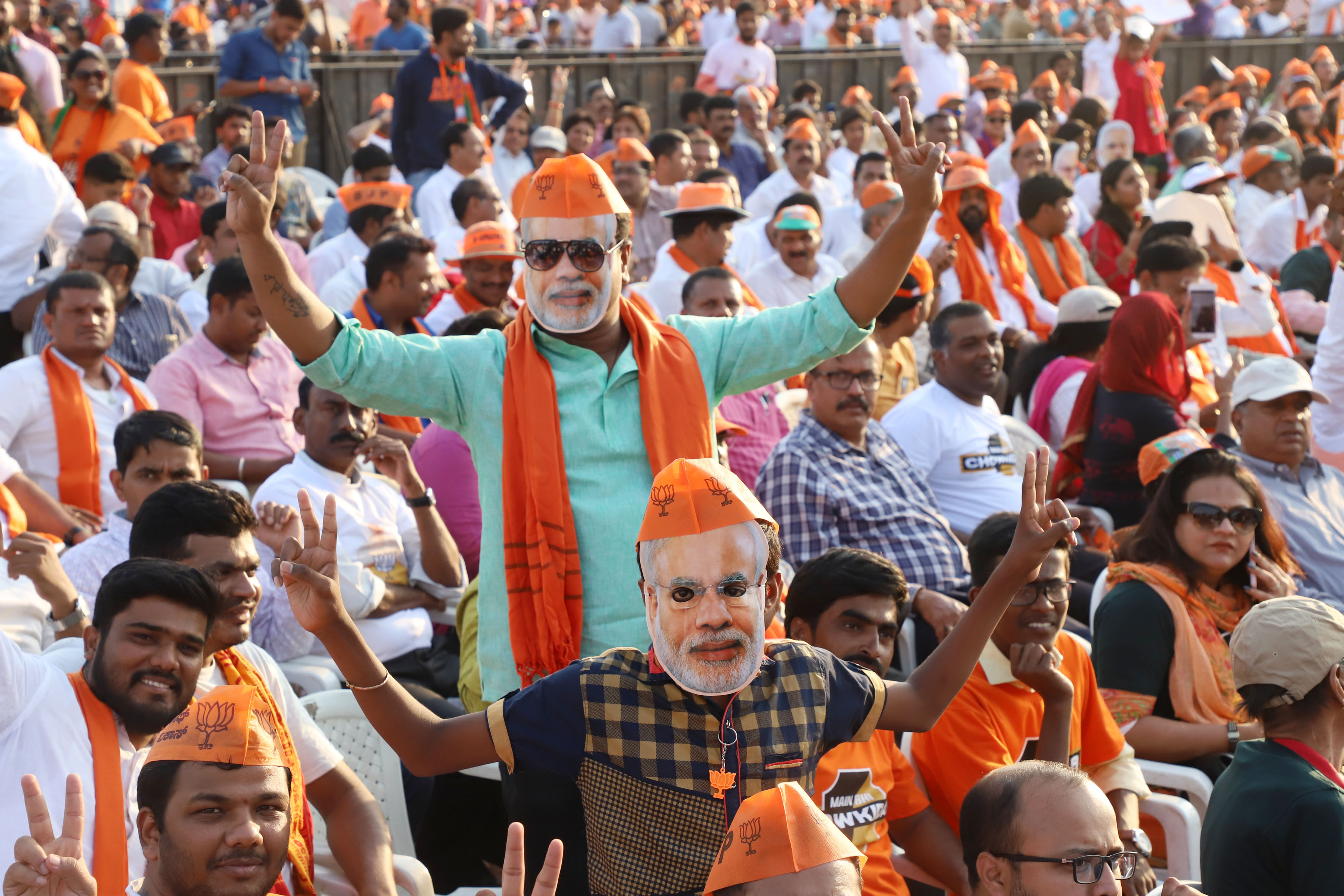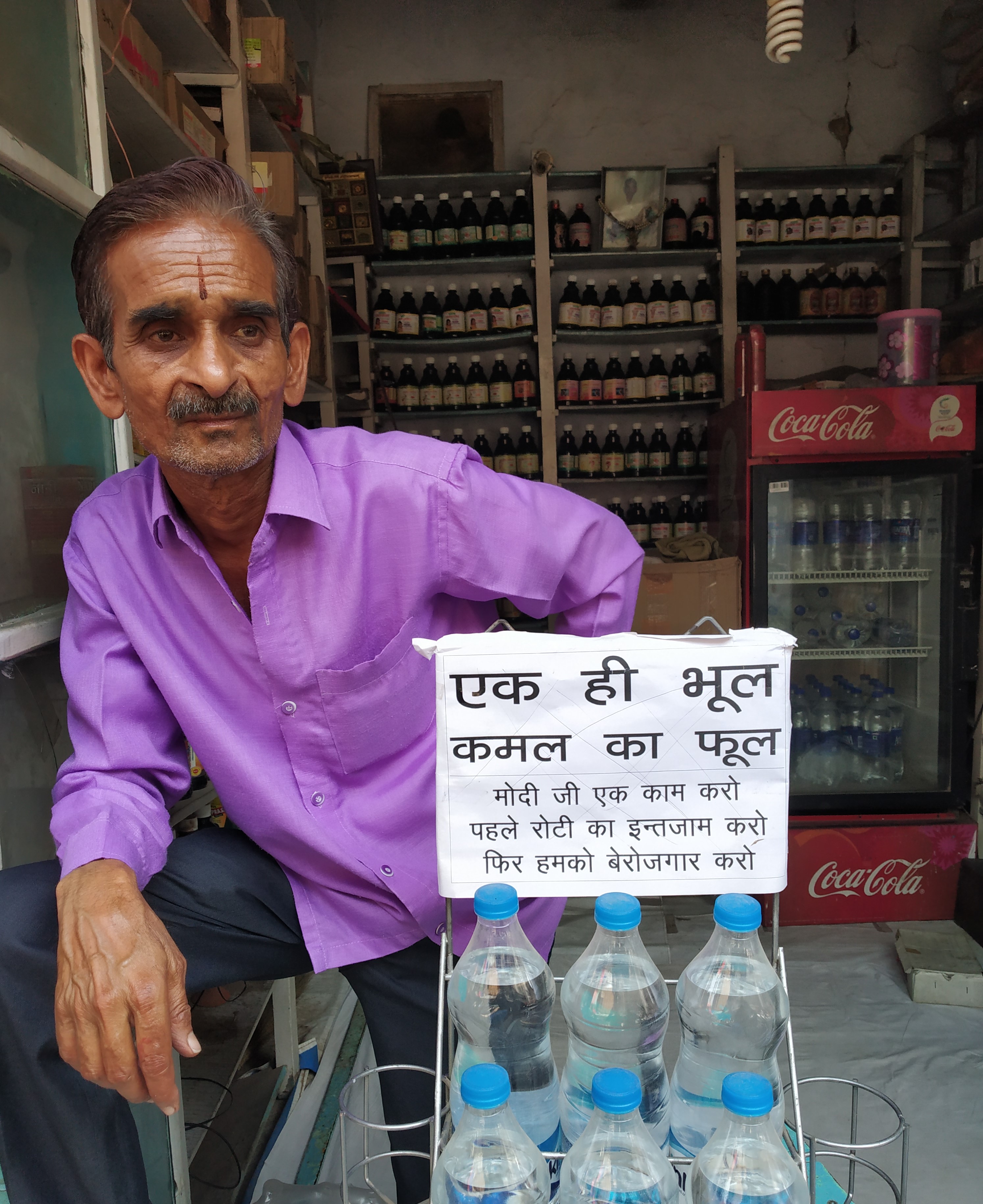
Raebareli and Varanasi tell the tale of two Indias contesting 2019 polls

A five hour journey from Raebareli to Varanasi, on a winding road that passes through silent towns, sleepy villages and several river fronts, shows two Indias fighting the 2019 election in Uttar Pradesh.
One is the India of Raebareli: Quiet, nondescript, rugged and, like the parliamentarian who represents this high profile constituency, missing from the current narrative.
The other India is that of Varanasi/Kashi/Banaras: Vibrant, vocal, dazzling, and, again, like the parliamentarian who represents this ancient city, the dominant voice of the 2019 narrative.
The India of Varanasi is convinced there is a wave in favour of Prime Minister Narendra Modi and it will help the BJP sweep the elections. It has a long list of arguments to support its prediction —Balakot, development, Hindutva, cash transfer of doles and social security schemes among others.
But, the most compelling reason for this purported Modi wave is proffered by Anil Kumar Pandey, manager of Tiwari ji Manpasand Dhabha, a roadside eatery, where many travellers from Raebareli stop before heading towards the medieval town of Jaunpur and from there to Varanasi.
“People are voting in large numbers for Modi and he is headed towards a massive mandate. Through his speeches, Modi has convinced people that Modi is India and, thus, every vote for the BJP is for India’s future. They have a litany of complaints against the government. But, in the interest of the nation, they are willing to forget them,” he says.
What Pandey essentially means is this: Modi has elevated the status of an individual vote to give it a higher, altruistic purpose. People are no longer voting for better roads, jobs, education, higher prices for their merchandise and crops or improvement in their own lifestyle. They are, through their ballot, contributing to a better India, a safer India and a powerful India.
This messaging is essentially a replay of Modi’s demonetisation theme. On November 8, 2016, when he had banned more than 85% of the currency in circulation, Modi had made the Indian masses queue up outside banks, suffer shortage of cash and jobs, and part with their money on the pretext of participating in nation building. Having perfected it in a different context, he has implemented it with devastating effect in these polls.

If you want to understand this “vote-for-nation-building” argument, strike a conversation with Rajendra Kumar Maheshwari, who sells Ayurvedic medicines a few yards from Kashi Vishwanath — one of the most sacred shrines of India. At the entrance of his “90-year-old” shop, Maheshwari has put up a placard stating: Ek hi bhool, kamal ka phool (Just one mistake, voting for the lotus symbol of the BJP).
Maheshwari says he is unhappy with the BJP because its government is about to evict him from the shop for broadening the roads leading to the temple. “We trusted the BJP, but they stabbed us in the back,” he complains. Yet, he says, I will vote for Modi, who is contesting from Varanasi.
“The BJP is telling us that we will have to make such small sacrifices for the country. So, ultimately, I will vote for Modi, in fact, anybody who seeks support for the PM.”
A gentleman sitting next to him recites a long limerick comparing politicians with donkeys who are eating chyawanprash — an Ayurvedic tonic made of gooseberries — while the common man stays hungry. He has an even bigger litany of woes. But, he too will vote for Modi. The reason: Modi is India, and vote is rashtraseva (nation’s service).
Varanasi is one of the most ancient and sacred cities in India. Many argue that Lord Shiva, who himself founded Kashi — later christened Varanasi by the British because of the two Ganga tributaries Varuna and Assi that flow through it — blessed the city with immortality. The pundits of Kashi believe even if pralay (complete destruction) were to visit the earth, Shiva would protect their city by balancing it on his trident. Nothing, they claim, can harm Kashi. Modi’s devotees also have similar faith in his destiny. They claim every argument against and attack on him will fail because he is “blessed.”
There is, of course, another India that believes all this is codswallop, a paean by Modi’s bhakts, just like the devotional hymns of Hanuman Chalisa composed by Tulsidas on the banks of Varanasi. They believe that Modi’s invincibility is a myth and that the real election is being fought in India’s unsung villages, on real life issues, along real battle lines of caste and community.
“There is no Modi wave in this election. The BJP is losing in most of the constituencies in Purvanchal (geographical region around Varanasi),” argues Manoj Kumar Singh, a political activist whose family members have fought several elections for different parties, including the BJP.
Silent opposition
The ‘Modi is winning’ narrative is heard more because those voting against him are silent. The Muslims are quietly watching the campaign, ready to support en masse whoever is in a position to beat the BJP. The Yadavs and Jatavs — core voters of the Samajwadi Party (SP) and the Bahujan Samajwadi Party (BSP) — are transferring their votes to whoever is contesting as part of the alliance between the two parties.
The owner of a prominent regional channel makes a bold prediction: “The majority is with the BSP-SP alliance because of their wonderful chemistry on the ground and arithmetic on paper. They BJP will not cross 20 seats,” he wagers.
Once upon a time, Raebareli was one of the most famous constituencies in India. First by virtue of being the electoral base of former Prime Minister Indira Gandhi, her husband Feroze and nephew Arun. And then because her daughter-in-law Sonia, the incumbent, won successive elections since 2004. The caste math of the constituency — brahmins, Muslims and dalits are in large numbers —helped the Congress in the previous century. Later, it thrived on emotional ties between local voters and the Gandhi family.
In spite of being a bastion of the Gandhis, Raebareli is still a rundown town from the past century. It shows no signs of life or aura typical of a high-profile seat. People here go about their lives at a leisurely pace, unaffected by the buzz in adjoining Lucknow or the political frenzy in Varanasi. Yet, it continues to reject the BJP.
It is this quiet, enigmatic, caste-obsessed second India that should worry the BJP.


